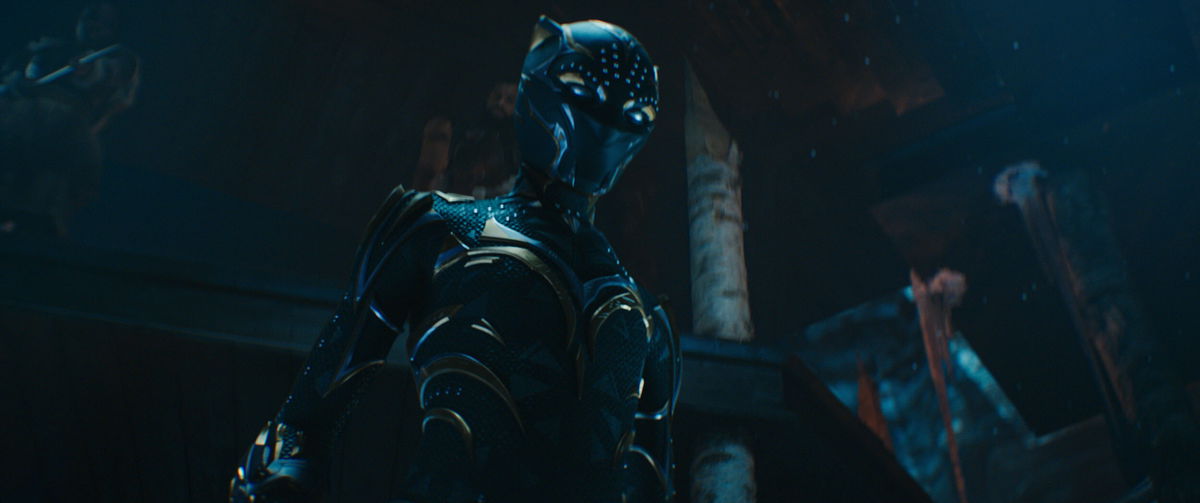‘Black Panther: Wakanda Forever’ pulls off a difficult dive after Chadwick Boseman’s death

This image shows a scene from "Black Panther: Wakanda Forever."
Review by Brian Lowry, CNN
In the parlance of Olympic diving — a good analogy for blockbuster movie-making — “Black Panther: Wakanda Forever” faced an inordinate degree of difficulty, addressing the tragic death of Chadwick Boseman. That the movie manages to strike that somber chord and still deliver as Marvel-style entertainment represents a major accomplishment, though the tension created by those two forces grinding in different directions can’t entirely be ignored.
Director/co-writer Ryan Coogler and Marvel’s Kevin Feige almost immediately dispensed with any thought of recasting the title role, which made incorporating the death of King T’Challa an unavoidable part of the plot. His absence gives the movie considerable emotional weight but also provides a constant real-world reminder that makes escaping into the adventure a higher bar to clear than standard superhero fare.
The solution devised does allow (indeed, require) other characters to shift more toward the forefront, and they admirably rise to the occasion, while transforming this sequel into one of the studio’s most female-centric efforts, with Letitia Wright, Angela Bassett, Lupita Nyong’o and Danai Gurira all playing enhanced roles.
“Black Panther” had already been defined in part by its strong female characters, including the king’s loyal guard, the Dora Milaje, and sister Shuri (Wright), a genius inventor. The sequel, however, forces them to grapple with defending their people while in the throes of grief, which, again, mirrors the delicate juggling act the entire film represents.
As if those underpinnings weren’t challenge enough, Coogler and company also undertake another exercise in world building almost on a scale that matches the original “Black Panther,” introducing another fantastical hidden kingdom — this time of the underwater variety — presided over by its own king, Namor (Tenoch Huerta Mejía), he of the winged feet, extraordinary strength and amphibious ability to straddle the ocean and the land.
The producers cleverly bring Namor’s Mayan-inspired kingdom into the narrative through its access to the precious metal that put Wakanda on the map, Vibranium, with Namor understandably concerned that exposure of his people’s store of it places them at risk from those who live above.
Unfortunately, the dazzling aspects of that undersea world can’t help but bear a more-than-passing resemblance to DC’s “Aquaman,” blunting the sense of awe that those sequences are clearly intended to evoke.
Ultimately, there’s a logical framework to all the choices in “Wakanda Forever,” from the issues around passing the baton to the buildup toward confrontation between the two kingdoms, and Wakanda’s still-wary posture toward the rest of the globe.
The larger question — if those decisions have genuinely put the franchise on a sustainable path in terms of carrying it into the future, or simply made the best of the bad hand dealt the filmmakers after the 2018 release’s enormous success — is harder to judge at this stage.
With other Marvel stalwarts having exited the universe post-“Endgame,” “Black Panther” appeared poised to become a focal point going forward.
Whether “Wakanda Forever” can bridge that gap and position Marvel to fill that void remains to be seen. But presented the daunting task of bidding farewell to a star tragically taken in his prime in sober but stirring fashion, Coogler has given audiences, and the studio, a solidly and gracefully executed dive into a “Wakanda” for right now.
“Black Panther: Wakanda Forever” premieres November 11 in US theaters. It’s rated PG-13.
The-CNN-Wire
™ & © 2022 Cable News Network, Inc., a Warner Bros. Discovery Company. All rights reserved.
